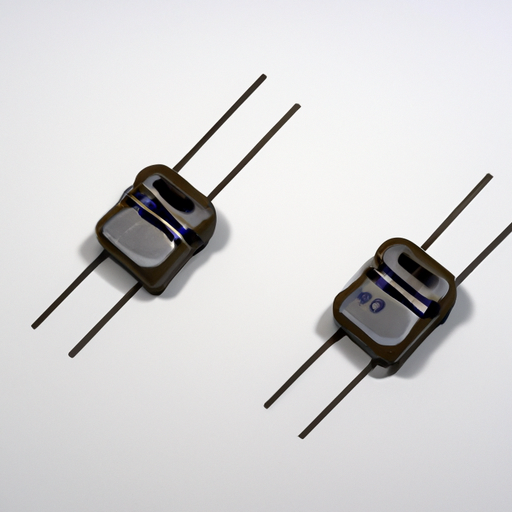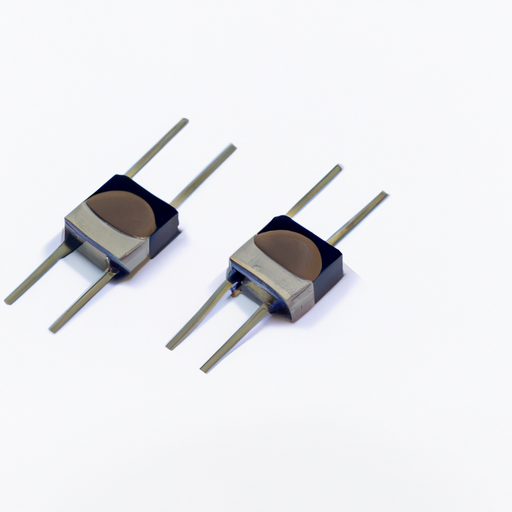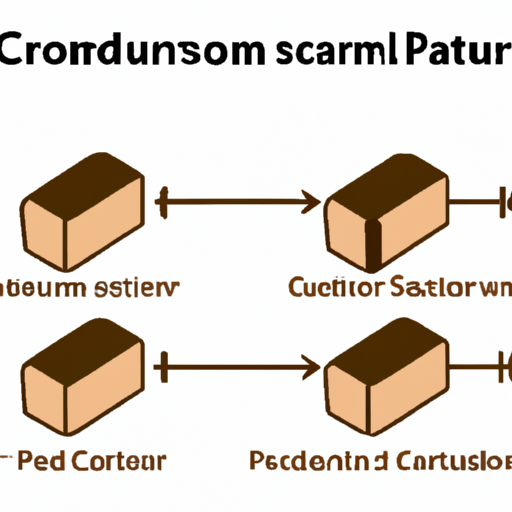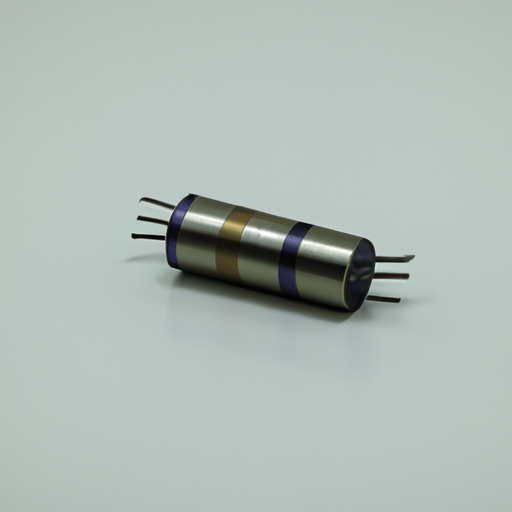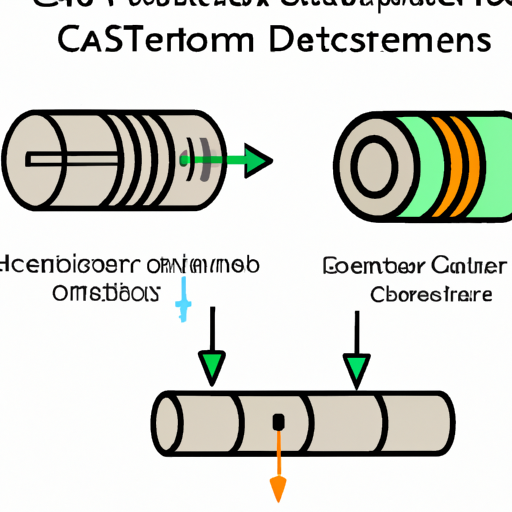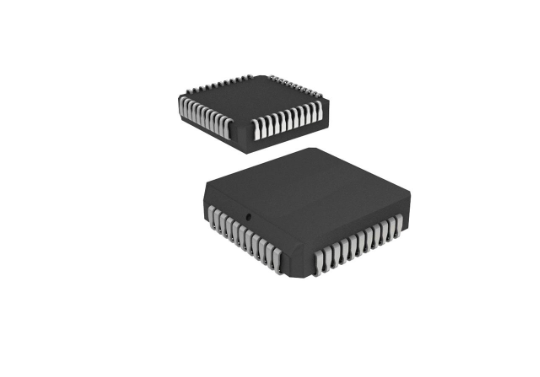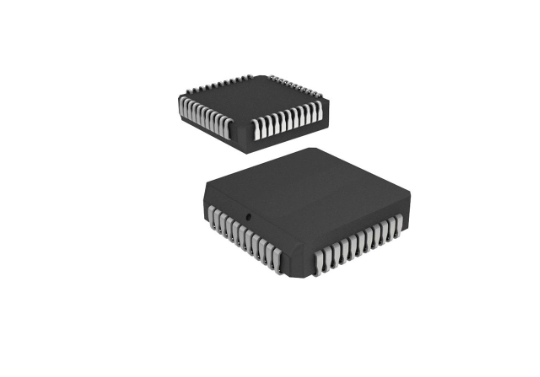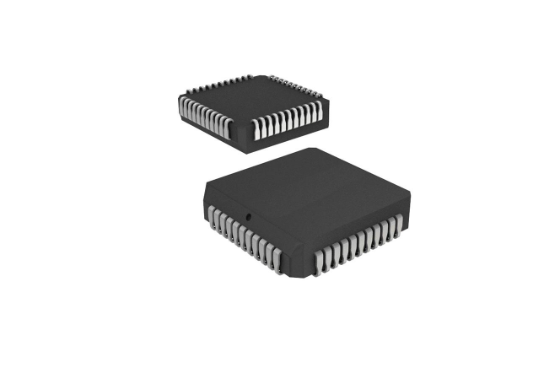What are the advantages of inductor factory products?
What are the Advantages of Inductor Factory Products?
I. Introduction
Inductors are passive electronic components that store energy in a magnetic field when electrical current flows through them. They play a crucial role in various electronic circuits, serving functions such as filtering, energy storage, and voltage regulation. As the demand for high-quality inductors continues to grow, inductor factories have emerged as key players in the manufacturing process, providing products that meet the needs of diverse industries. This blog post explores the advantages of inductor factory products, highlighting their significance in modern electronics.
II. Understanding Inductors
A. Basic Principles of Inductance
Inductance is the property of an electrical conductor that opposes changes in current. When current flows through an inductor, it generates a magnetic field around it. If the current changes, the magnetic field also changes, inducing a voltage that opposes the change in current. This principle is fundamental to the operation of inductors and is utilized in various applications, from power supplies to radio frequency circuits.
B. Types of Inductors
Inductors come in various types, each designed for specific applications:
1. **Air Core Inductors**: These inductors do not use a magnetic core, making them suitable for high-frequency applications due to their low losses.
2. **Iron Core Inductors**: Featuring a core made of iron, these inductors are used in applications requiring high inductance values and are effective in low-frequency circuits.
3. **Ferrite Core Inductors**: Ferrite cores are made from a ceramic material that offers high magnetic permeability, making them ideal for high-frequency applications with minimal losses.
4. **Toroidal Inductors**: These inductors have a doughnut-shaped core, which helps reduce electromagnetic interference and improve efficiency.
C. Applications of Inductors in Various Industries
Inductors are widely used across multiple industries, including telecommunications, automotive, consumer electronics, and renewable energy. They are essential components in power supplies, filters, transformers, and energy storage systems, demonstrating their versatility and importance in modern technology.
III. Advantages of Inductor Factory Products
A. Quality Assurance
One of the primary advantages of inductor factory products is the assurance of quality. Factories implement consistent manufacturing processes that adhere to industry standards, ensuring that each inductor meets specific performance criteria. Rigorous quality control measures are in place to detect defects and maintain high standards, resulting in reliable products that engineers can trust.
B. Customization Options
Inductor factories offer a range of customization options, allowing customers to tailor designs for specific applications. This includes variations in size, inductance value, and other specifications. Such flexibility enables engineers to find the perfect inductor for their unique requirements, enhancing the overall performance of their electronic systems.
C. Cost-Effectiveness
Economies of scale in production make inductor factory products cost-effective. By mass-producing inductors, factories can reduce manufacturing costs, passing these savings on to customers. Compared to custom solutions, factory-produced inductors often come at competitive prices, making them an attractive option for businesses looking to optimize their budgets without compromising on quality.
D. Technological Advancements
Inductor factories are at the forefront of technological advancements in manufacturing. They utilize modern techniques and integrate advanced materials to enhance the performance characteristics of inductors. Innovations such as improved core materials and manufacturing processes lead to inductors with higher efficiency, lower losses, and better thermal management, which are essential for high-performance applications.
E. Reliability and Longevity
Factory-produced inductors are designed for durability and longevity. The controlled manufacturing environment and adherence to quality standards result in products with reduced failure rates. This reliability is crucial in electronic applications, where component failure can lead to significant downtime and increased costs.
F. Availability and Supply Chain Efficiency
Inductor factories have the capability for mass production, ensuring a steady supply of inductors to meet market demands. Streamlined distribution channels and efficient supply chain management reduce lead times for procurement, allowing businesses to maintain their production schedules without delays. This availability is particularly important in industries where time-to-market is critical.
IV. The Role of Inductor Factories in Innovation
A. Research and Development
Inductor factories invest in research and development to stay ahead of industry trends and technological advancements. By collaborating with academic institutions and industrial partners, they explore new materials and manufacturing techniques that can lead to the next generation of inductors. This commitment to innovation ensures that factory-produced inductors remain relevant and effective in an ever-evolving technological landscape.
B. Contribution to Emerging Technologies
Inductors play a vital role in emerging technologies, and inductor factories are instrumental in supporting these advancements. For instance, inductors are essential components in renewable energy systems, such as wind and solar power, where they help manage energy flow and storage. Additionally, they are crucial in electric vehicles and smart grids, contributing to the efficiency and reliability of these systems. The impact of inductors extends to telecommunications and data centers, where they help manage signal integrity and power distribution.
V. Challenges Faced by Inductor Factories
Despite the numerous advantages, inductor factories face several challenges in the global market. Competition is fierce, with manufacturers striving to differentiate their products and maintain market share. Supply chain disruptions, often caused by geopolitical factors or natural disasters, can impact production schedules and availability. Furthermore, environmental considerations are becoming increasingly important, prompting factories to adopt sustainable practices and reduce their carbon footprint.
VI. Conclusion
In summary, the advantages of inductor factory products are manifold, encompassing quality assurance, customization options, cost-effectiveness, technological advancements, reliability, and supply chain efficiency. As the demand for high-quality inductors continues to rise, the role of inductor factories in innovation and the development of emerging technologies becomes increasingly significant. Looking ahead, the inductor manufacturing industry is poised for growth, driven by advancements in technology and the ongoing need for reliable electronic components in modern applications. Quality inductors will remain a cornerstone of electronic design, ensuring the continued functionality and efficiency of a wide range of devices.
VII. References
1. Academic journals and articles on inductors.
2. Industry reports and market analysis.
3. Manufacturer websites and product specifications.
This blog post provides a comprehensive overview of the advantages of inductor factory products, emphasizing their importance in the ever-evolving landscape of electronics.


